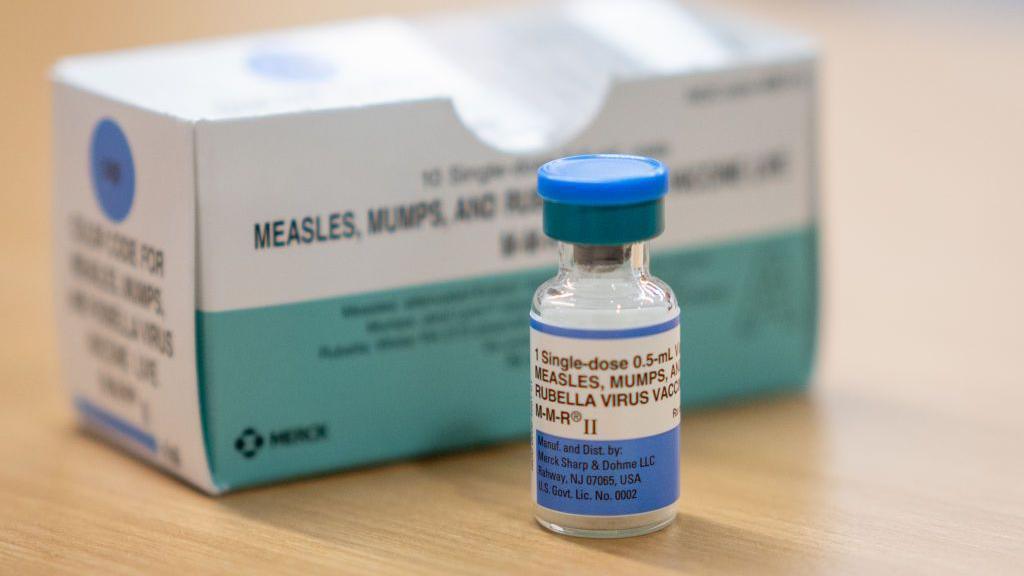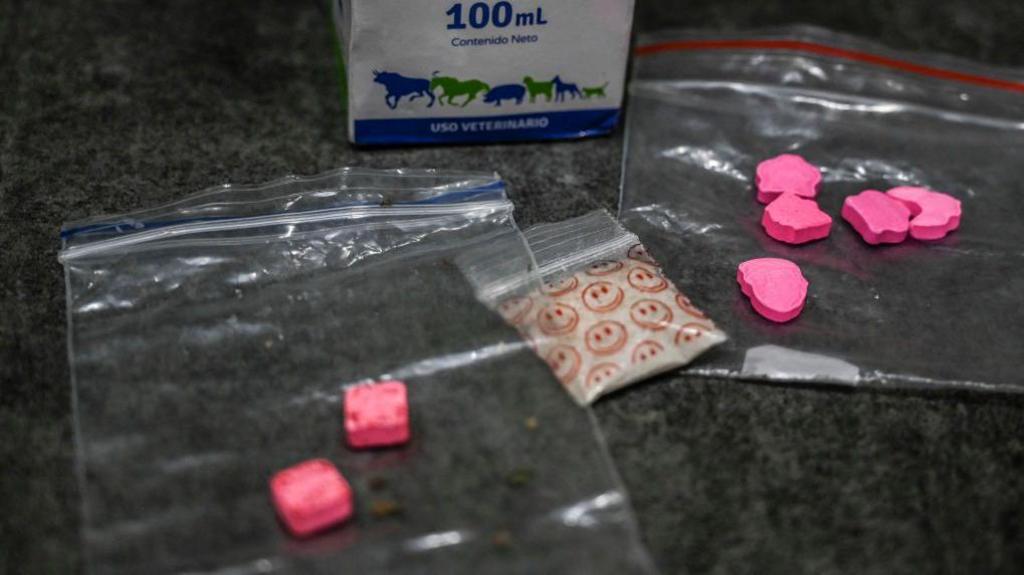How to stay safe at festivals this summer

Glastonbury kicks off in just two weeks
- Published
People heading to Glastonbury and other festivals are being reminded to remain aware of health risks so they can enjoy events safely.
Glastonbury kicks off the festival season - but ongoing risks around measles, sexually transmitted diseases and illegal drugs remain.
"Most risks can be avoided by taking simple steps to help protect yourself, remembering to keep yourself cool and avoid excess alcohol can help keep you safe during periods of hot weather," said Alison Bell, acting director of public health for Somerset Council.
The authority have worked with the UK Health Security Agency to put together five tips on staying safe at festivals this year:
Get your MMR

The MMR vaccine is the most effective way of combating measles
Measles is currently circulating across the country and has high numbers in the South West and London.
Symptoms include a high fever, sore red watery eyes and a blotchy red-brown rash.
It is particularly easy to catch when in close contact with others, such as in crowds.
Anyone with symptoms is advised to stay at home and contact their GP or NHS 111.
Vaccination remains the best way to protect yourself and others around you.
Prepare for the weather
While the weather cannot be predicted - everyone is hoping for sun when they head to a festival.
However, the UKHSA say it is important to pack for all possibilities.
Remember to take wellies, waterproofs and warm layers in case the weather takes a turn or gets cold at night.
Likewise - remember to pack a refillable water bottle, sun hat and sun cream and avoid excessive alcohol consumption in hot weather.
Keep a look-out for signs of heat-related harm in yourself, your friends, and other people around the festival and seek help if you are struggling.
Practice safe sex

Hundreds of thousands of people attend Glastonbury
Certain sexually transmitted diseases are currently on the rise and the UKHSA is reminding everyone to practice safe sex and get regularly tested.
Testing is free and confidential, and you should get tested even if you are not showing any symptoms.
"Condoms are the best defence, but if you didn't use one the last time you had sex with a new or casual partner, get tested to detect any potential infections early and prevent passing them on to others," said Dr Alasdair Wood, consultant in health protection at UKHSA South West.
Be aware of ticks

Peak tick season is from May to June but they can remain active throughout the summer
Regularly check clothing and skin for ticks and brush them off outdoors if they have not bitten.
If a tick has burrowed into your skin - it must be removed as soon as possible using a tick tool or tweezers.
To remove a tick, grasp the tick as close to the skin as possible and pull upwards slowly and firmly.
The use of insect repellents such as DEET can repel ticks and prevent them from climbing onto clothing or attaching to skin.
Ticks can cause illnesses such as Lyme disease if not removed properly.
Avoid illegal substances

Glastonbury and other festivals warn against taking or bringing illegal drugs onto the site
The message from most festivals is not to bring or use illegal substances to the site.
Drug enforcement laws are as applicable on the festival site as anywhere else in the country and you risk being arrested and evicted from the site if found with them.
Attendees are reminded if they do ignore that advice and become ill or experience unusual effects from any substances taken, to seek immediate help from the medical or welfare services on site who can provide help and support.
Polydrug use – using more than one drug at a time – intensifies the effects of the drugs and makes them more dangerous.
Mixing alcohol alongside other drugs is one of the most common forms of polydrug use and can seriously increase the strength and impact of those substances, increasing the chances of a potentially fatal chemical reaction.
Get in touch
Tell us which stories we should cover in Somerset
Follow BBC Somerset on Facebook, external and X, external. Send your story ideas to us on email or via WhatsApp on 0800 313 4630.
- Published6 March

- Published9 June

